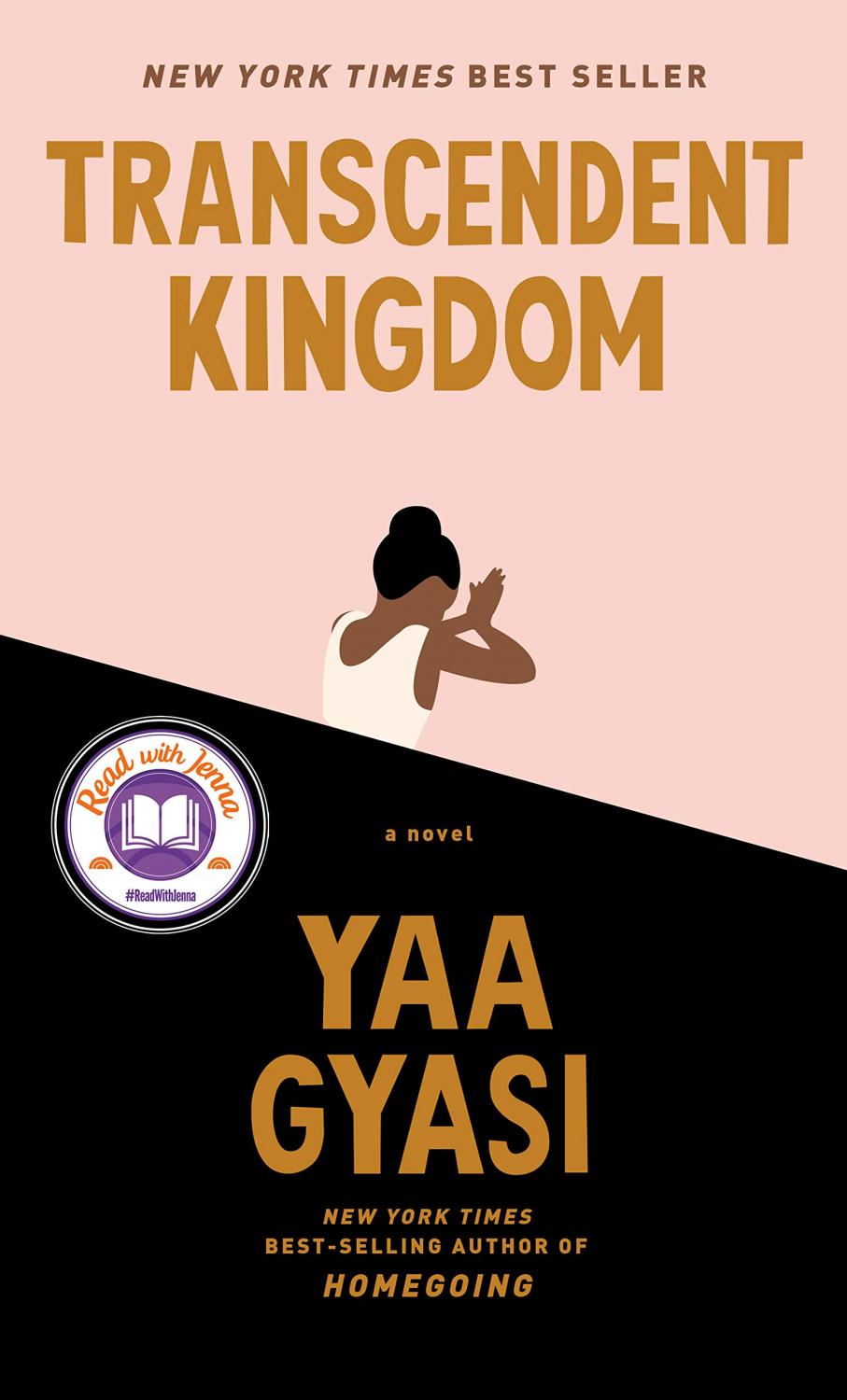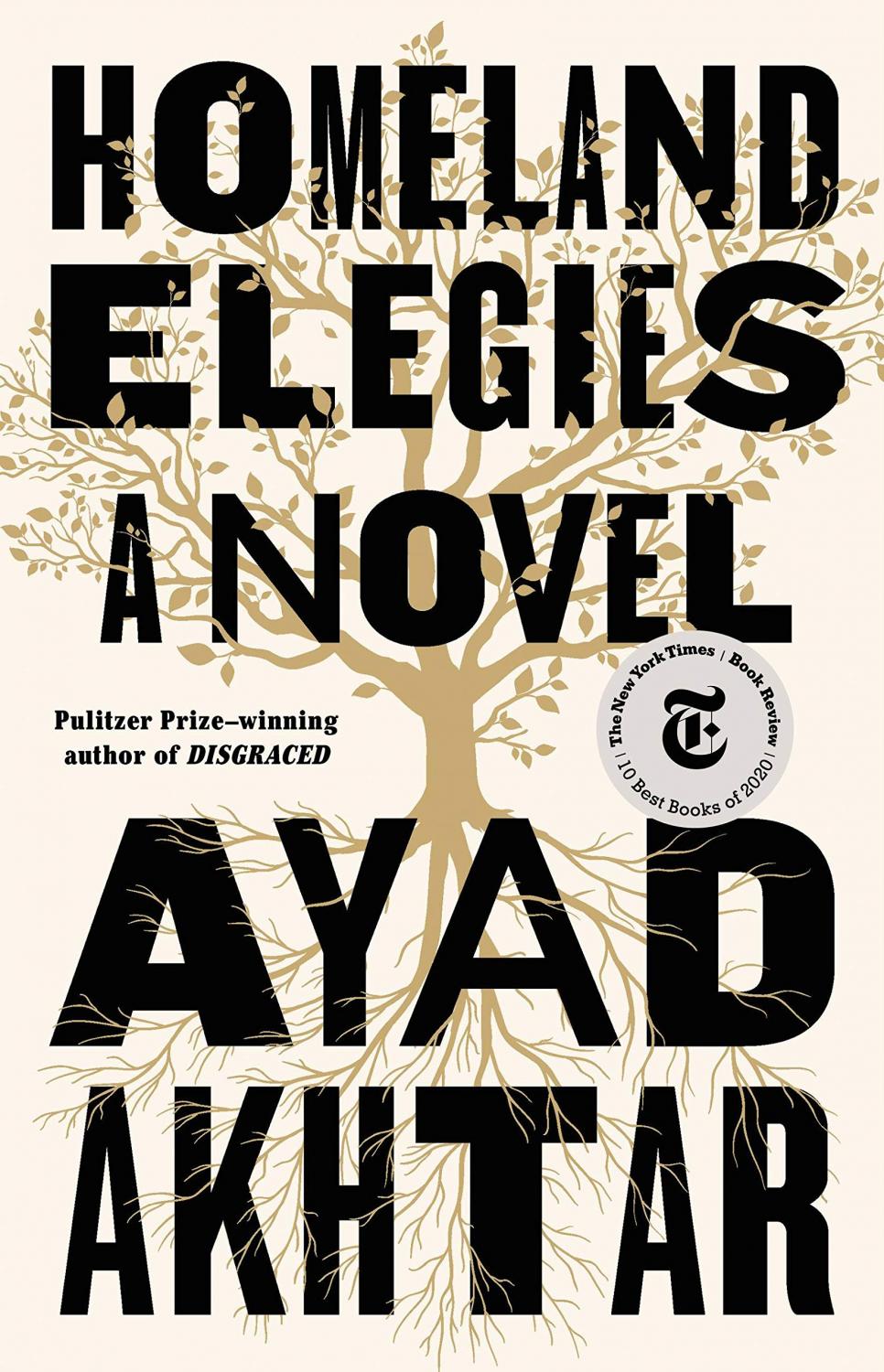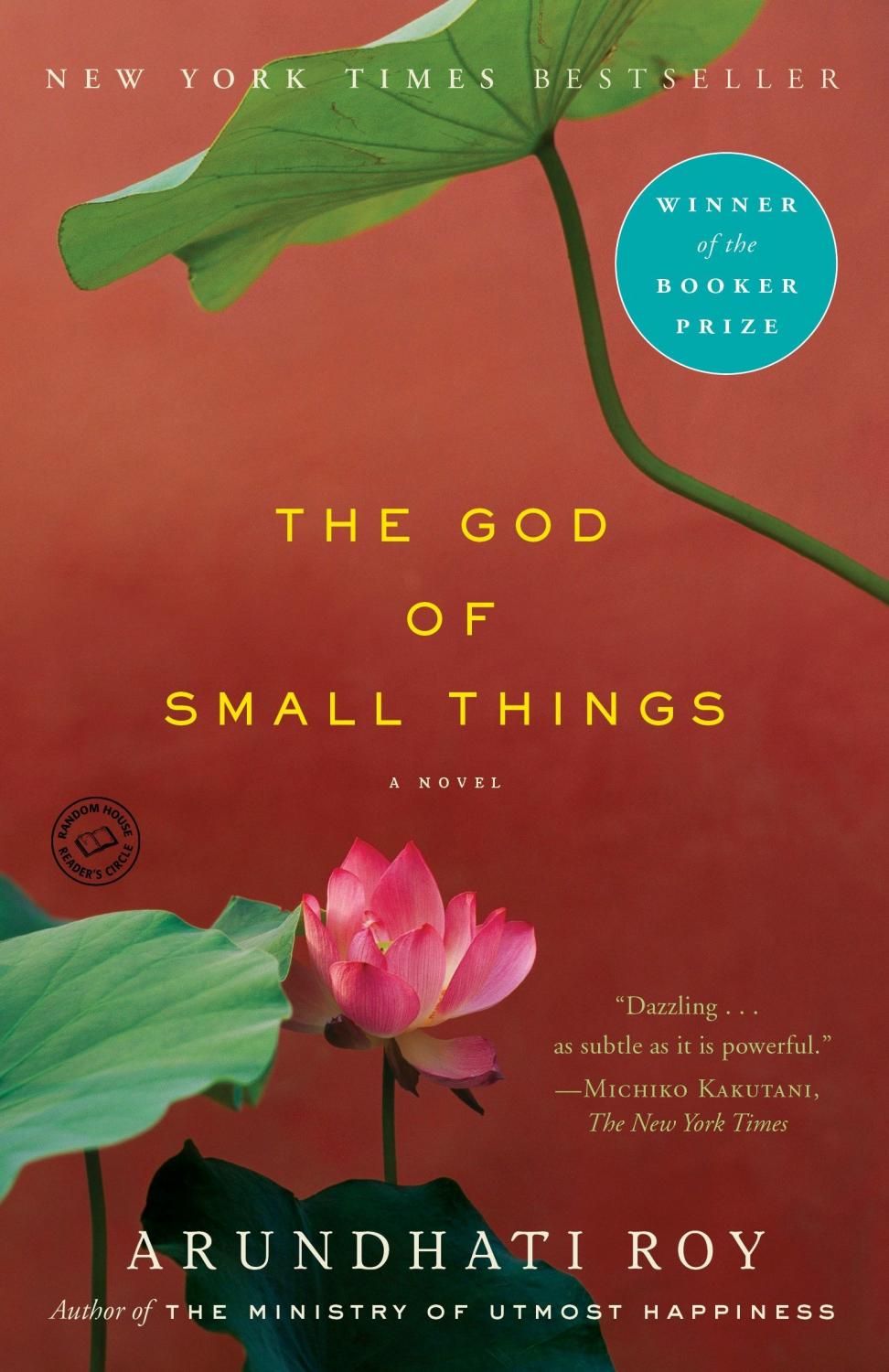 Transcendent Kingdom
Transcendent Kingdom
by Yaa Gyasi
GENRE: Literary Fiction, Contemporary Fiction
Gifty is in medical school studying neuroscience and reward-seeking behavior. Raised in an intensely religious Pentecostal Christian family, she has now turned to a science-based understanding of the world. When her mother suddenly reenters her life, Gifty is forced to come to terms with wrenching memories from her past. A moving tale of science, faith, religion, and love.
 Author Biography
Author Biography
Novelist Yaa Gyasi is the author of Homegoing, one of the most celebrated debuts of 2016. A riveting, kaleidoscopic novel, Homegoing is a story of race, history, ancestry, love, and time that traces the descendants of two sisters torn apart in eighteenth-century Africa across three hundred years in Ghana and America.
An important new literary voice, Yaa Gyasi’s writing has been praised by National Book Award winner Ta-Nehisi Coates as “an inspiration” and “what happens when you pair a gifted literary mind to an epic task.” In September 2016, she was chosen by Coates as one of the National Book Foundation’s “5 Under 35” honorees. Personable and intimate, Gyasi’s lectures explore contemporary craft, cultural identity, and the complex racial landscape of America’s past and present.
Homegoing is the story of two half-sisters, Effia and Esi, born into different villages in eighteenth-century Ghana. Effia is married off to an Englishman and will live in comfort in the palatial rooms of Cape Coast Castle, raising children who will be sent abroad to be educated before returning to the Gold Coast to serve as administrators of the empire.
Esi, imprisoned beneath Effia in the Castle’s women’s dungeon and then shipped off on a boat bound for America, will be sold into slavery. Homegoing stretches from the wars of Ghana to slavery and the Civil War in America, from the coal mines in the American South to the Great Migration and twentieth-century Harlem. A powerful and emotional American novel about race and history, this is truly a book for our times.
Her stunning follow-up novel, Transcendent Kingdom, is a powerful, raw, intimate, deeply layered novel about a Ghanaian family in Alabama. Transcendent Kingdom was an instant New York Times bestseller.
Born in Ghana and raised in Huntsville, Alabama, Yaa Gyasi is a graduate of the Iowa Writer’s Workshop and lives in Berkeley, California. She is the winner of the National Book Critics Circle John Leonard Prize, the PEN/Hemingway Award for Best First Novel, and was a finalist for the Dayton Literary Peace Prize for Fiction and the PEN/Robert W. Bingham Prize. Homegoing also was a winner at the 2017 Audie Awards. - Penguin Random House Speakers Bureau
Booklist
Following her spectacularly lauded, bestselling historical and ancestral debut, Homegoing (2016), Gyasi’s turns to the contemporary, tracing the dissolution of a Ghanaian immigrant family. By the time Gifty leaves Alabama for Harvard, she’s resolved to “build a new Gifty from scratch” by shedding the debilitating experiences of her young life: her father’s abandonment and return to Ghana, her older brother Nana’s heroin overdose, her mother’s suicidal depression, her faltering faith. In Cambridge, she could be “confident, poised, smart . . . strong and unafraid.” Four years later, she’s untethered again, arriving at Stanford to work toward a neuroscience PhD. For all her groundbreaking research, she’s really just trying to comprehend what happened to beloved Nana via cocaine-and-then-Ensure-addicted lab mice which became willing to risk physical damage for gratification. Six years into the program, Gifty’s mother arrives, once more cripplingly withdrawn. Her silent presence will require some semblance of confrontation and reconciliation with their tragic past. Despite compounding challenges and tragedies, Gyasi never allows Gifty to devolve into paralyzing self-absorption and malaise. With deft agility and undeniable artistry, Gyasi’s latest is an eloquent examination of resilient survival. -- Terry Hong (Reviewed 7/1/2020) (Booklist, vol 116, number 21, p22)
Publisher's Weekly
Gyasi’s meticulous, psychologically complex second novel (after Homegoing) examines the consequences of a Ghanian family’s immigration to Huntsville, Ala. Gifty, the only member of the family born in the United States, is six years into a doctorate in neuroscience at Stanford, where she is attempting to see if she can alter the neural pathways leading to addiction and depression. Her project is motivated by the fate of her beloved older brother who died from a heroin overdose when she was in high school, and by the condition of her depressed mother, who is staying at Gifty’s apartment. Though she now determinedly puts her faith in science, Gifty still feels the pull of her evangelical upbringing, and she struggles to reconcile the two opposing belief systems while juggling her dissertation and care for her mother, plus a growing attraction to her awkward lab mate. The narrative moves smoothly between the present and Gifty’s childhood, with episodes such as a summer spent in Ghana with her aunt during a previous phase of her mother’s depression rising in the background while Gifty works her way up in her field. Gyasi’s constraint renders the emotional impact of the novel all the more powerful: her descriptions of the casual racism endured by the family, particularly at the hands of their nearly all-white church in Alabama, is more chilling for being so matter-of-fact. At once a vivid evocation of the immigrant experience and a sharp delineation of an individual’s inner struggle, the novel brilliantly succeeds on both counts. (Sept.) --Staff (Reviewed 07/06/2020) (Publishers Weekly, vol 267, issue 27, p)
Kirkus Reviews
A scientist weighs the big questions that her private trauma bequeaths her. After Homegoing (2016) swept through seven generations, Gyasi’s wise second novel pivots toward intimacy. It unspools entirely in the voice of watchful, reticent, brilliant Gifty, 28, nearly finished with her doctorate in neuroscience at Stanford’s School of Medicine. Her formidable mother, a home health care aide, has plummeted into a second severe depression, and their family pastor has dispatched the limp woman toward Gifty via airplane from Huntsville, Alabama, “folding her up the way you would a jumpsuit.” The first episode, when Gifty was 11, arrived after an opiate overdose stole the life of 16-year-old Nana, the firstborn son and more cherished child. Both times the Ghanaian matriarch has crawled mutely into bed, but this time not before asking adult Gifty if she still prays. “No,” says Gifty, who turns her ontological questions on lab mice. She gets them addicted to Ensure and then opens their brains surgically, probing the neural pathways of recklessness, looking for clues to creating restraint. Gifty hopes to apply her results to “the species Homo Sapiens, the most complex animal, the only animal who believed he had transcended his Kingdom, as one of my high school biology teachers used to say.” This work, Gifty insists, has zero to do with her brother’s death. In 54 microchapters and precise prose, Gyasi creates an ache of recognition, especially for readers knowledgeable about the wreckage of addiction. Still, she leavens this nonlinear novel with sly humor, much more than in Homegoing, as the daughter of a traditional woman weighs what it means to walk in the world not quite a nonbeliever. The author is astute about childhood grandiosity and a pious girl’s deep desire to be good; she conveys in brief strokes the notched, nodding hook of heroin’s oblivion. In its wake, adult Gifty sits with the limits of both bench science and evangelical Christianity. Nowhere does Gyasi take a cheap shot. Instead, she writes a final chapter that gives readers a taste of hard-won deliverance. In a quietly poignant story, a lonely woman finds a way to be less alone. (Kirkus Reviews, August 15, 2020)
 Homeland Elegies: A Novel
Homeland Elegies: A Novel
by Ayad Akhtar
A deeply personal work about identity and belonging in a nation coming apart at the seams, Homeland Elegies blends fact and fiction to tell an epic story of longing and dispossession in the world that 9/11 made. Part family drama, part social essay, part picaresque novel, at its heart it is the story of a father, a son, and the country they both call home.
 The God of Small Things
The God of Small Things
by Arundhati Roy
In 1969, in Kerala, India, Rahel and her twin brother, Estha, struggle to forge a childhood for themselves amid the destruction of their family life, as they discover that the entire world can be transformed in a single moment.
 Red at the Bone
Red at the Bone
by Jacqueline Woodson
As Melody celebrates a coming of age ceremony at her grandparents' house in 2001 Brooklyn, her family remembers 1985, when Melody's own mother prepared for a similar party that never took place in this novel about different social classes